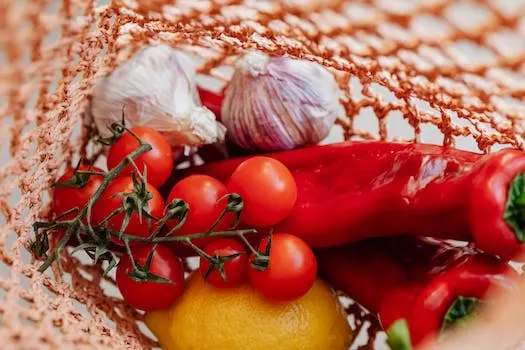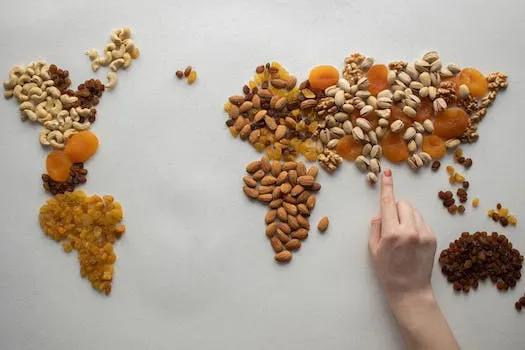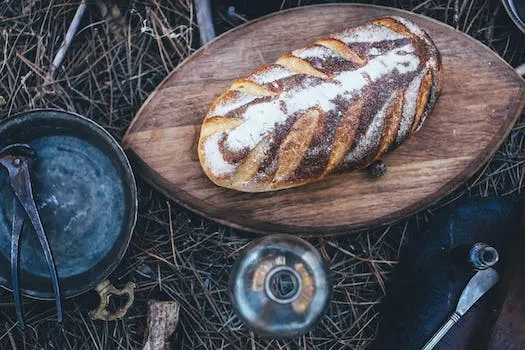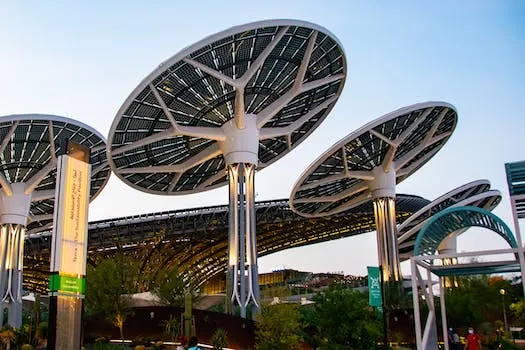
Eating Sustainable on a Budget: 5 Inexpensive Ways to Do It
Inflation is a reality of modern life, but that doesn’t mean that you have to sacrifice eating sustainably. Eating sustainably can be affordable if you are aware of the five inexpensive ways to do it. From shopping at local farmers’ markets to growing your own produce, here are five smart and cost-effective ways to eat sustainably on a budget. Despite inflation slowing down, grocery prices remain high and cheap food has become an essential part of the economy. One way to support local farmers while still getting the most for your money is by shopping at local farmers' markets or environmentally friendly stores that prioritize stocking sustainable products. Participating in one of these markets can be fun and educational as well; one market I attend has around 100 vendors who specialize in regenerative agriculture and veneration of small family farms.
Another great way to eat sustainably on a budget is by growing your own produce! This will not only save you money but also give you access to fresh fruits and vegetables all year round! If space permits, consider composting your food waste as well; this will help reduce energy consumption while also providing valuable nutrients for plants in your garden or yard. For those living in New York City, there are even programs available where residents can get free compost bins delivered right to their doorsteps! Finally, don't forget about meal planning - this will help ensure that no food goes wasted while also helping you stick within budget limits each week or month.
Eating sustainable doesn't have to break the bank - with these five inexpensive tips, anyone can enjoy delicious meals without sacrificing their values or wallet! Shopping at local farmers' markets, growing produce yourself, composting food waste when possible, taking advantage of meal planning strategies - all these methods combined make it easy for anyone looking for an affordable way to eat sustainably on a budget!
1. Buy in Bulk
Buying in bulk is a great way to save money while eating sustainably. Bulk items are typically less expensive than smaller quantities, and buying in bulk reduces the amount of packaging waste that goes into landfills. Plus, buying bulk items is a great way to support local farmers and businesses. When shopping for food on a budget, consider purchasing these five items in bulk: grains, nuts and seeds, dried fruit, spices and herbs, and legumes.
Buying food from bulk bins can save you money while also reducing food waste and packaging as you can purchase the exact amount of food you need without having to buy pre-packaged goods. There are many benefits to purchasing foods in bulk – it offers an affordable way to eat organic while avoiding excessive packaging which reduces your environmental footprint. Buying in bulk a.k.a loose product has tons of benefit; not only does it save you money but it also allows you to eat healthier produce which will improve your overall health as well as reduce plastic waste that would otherwise end up in landfills or oceans if not recycled properly.
Grains such as quinoa or oats are often cheaper when purchased from the bin section at grocery stores rather than pre-packaged bags or boxes; they’re also more versatile ingredients for cooking meals with minimal effort! Nuts and seeds like almonds or pumpkin seeds are packed with nutrients like protein, fiber, healthy fats and minerals; they’re usually cheaper when bought from the bin section too! Dried fruits such as raisins or cranberries make for delicious snacks on their own but can be used for baking too; they’re usually much cheaper when bought from the bin section compared to pre-packaged bags! Spices like cumin or turmeric add flavor without adding calories so they’re perfect for those looking to lose weight without sacrificing taste; plus they last longer when stored properly so buying them in larger quantities makes sense! Lastly legumes such as lentils or chickpeas provide plant-based proteins that are essential for vegetarians/vegans who don't consume animal products; these too tend to be much cheaper when purchased from the bin section compared to pre-packaged cans/bags!
Overall buying these five items (grains, nuts & seeds, dried fruit ,spices & herbs ,legumes)in bulk is cost effective since it cuts down on product packaging costs ,reduces waste ,and is usually cheaper than smaller quantities .It's also an easy way make a dent into plastic waste production by avoiding single use plastics .Plus its supports local farmers & businesses which helps build stronger communities !
2. Shop at Local Farmers’ Markets
Shopping at local farmers’ markets is an excellent way to eat sustainably on a budget. Not only do they offer a wide variety of fresh produce, often at cheaper prices than supermarkets, but the produce is usually organic and grown locally. This means that you can be sure that you’re eating sustainably. Plus, shopping at local farmers’ markets gives you the opportunity to get to know the farmers who are growing your food. You can learn about their growing practices and get tips on how to store and prepare produce.
Contrary to popular belief, eating healthy food doesn't have to be more expensive than grocery-bought products; in fact, it's often cheaper! Farmers markets offer fresh fruit and vegetables for lower prices than most grocery stores, plus a chance to meet the people who grow what you're buying. Behind all of this is an underlying commitment to sustainability; local farmers deliver fresh, local food with minimal environmental impact compared with large-scale industrial agriculture operations.
Even if your budget doesn't allow for shopping exclusively at Whole Foods or other high-end stores, there are still ways of eating sustainably without breaking the bank. local grocery stores may cost less than Whole Foods while still providing quality ingredients that are better for both your health and the environment. Additionally, talking directly with farmers can help you find out which items are in season or on sale so that you can make informed decisions about what foods will fit into your budget while still being sustainable choices.
Eating sustainably doesn't have to be expensive; by shopping locally at farmers' markets or even regular grocery stores when possible, it's possible not only save money but also support sustainable farming practices while doing so!
3. Reuse, Reduce, and Recycle
Reusing items is a great way to reduce the amount of waste you produce. Coffee cans, shoe boxes, and other containers can be reused for storage or craft projects. Plastic containers and reusable lunch bags are also great ways to take your lunch to school without creating waste. Reusing items not only helps the environment but it can also save you money in the long run.\nRecycling is an important part of eating sustainably on a budget. Recycling helps to reduce the amount of waste that goes into landfills, and it can save you money in the long run. You can recycle paper, plastic, glass, aluminum cans and more! Make sure to check with your local recycling center for what materials they accept so that you don't end up throwing away something that could have been recycled instead.\nReducing food waste is another way to eat sustainably on a budget. Plan your meals ahead of time and buy only what you need so that nothing goes bad before it's used up! Use vegetable greens in smoothies, soups, and stir-fry dishes; use food scraps in creative ways; avoid buying pre-packaged foods; shop at bulk stores; freeze leftovers for later use; compost kitchen scraps when possible – all these things help reduce food waste while saving money at the same time!
4. Grow Your Own Produce
Growing your own produce is a great way to eat sustainably on a budget. Not only is it cost-effective, but you can also have peace of mind knowing exactly where your food is coming from. If you're new to gardening, start small with a few plants in pots on your balcony or in your backyard and gradually increase the size as you become more experienced. When you grow your own food, you can be sure that it's fresh and organic without any unnecessary chemicals or GMOs. Plus, organic farming is far more sustainable than conventional methods since there are no pesticides used and wider biodiversity of crops are grown.
Organically growing your own produce also nourishes the soil by using safe and natural fertilizers and products. The easiest way to grow food is from items already in the fridge or pantry - when preparing meals there are many opportunities to grow new plants from peels, seeds, cuttings etc., so don't throw them away! Freshly grown produce tastes better too! Eating sustainably doesn't have to come with a hefty price tag - growing your own food provides an affordable alternative that's good for both the environment and for our wallets. Sustainability starts with how our food is grown - there's no better practice than growing it yourself!
5. Buy Less Processed Foods
processed foods are often cheaper than unprocessed foods, but they come with a cost to the environment. Processed foods contain preservatives, flavors, nutrients and other food additives that can have a negative impact on the environment. Highly processed or ultra-processed foods are higher in calories and contain few or no minimally processed or unprocessed ingredients. Minimally processed foods such as low-fat milk, whole-grain breads, precut vegetables and fresh-cut fruits can be part of a healthy diet. However, processes such as growing, harvesting, storage and preparing of food can affect its nutritional content. Additionally, commodity crops used in processed food production are often subsidized which makes them cheaper to produce than fresh food. To make sure you're eating sustainably on a budget it's important to classify your food into categories based on how much it's been processed - buy less highly processed items whenever possible for both your health and the environment!
Conclusion
Eating sustainably on a budget is possible if you know the right ways to do it. From buying in bulk to growing your own produce, there are several cost-effective and sustainable ways to eat. By following the five tips outlined in this article, you can make sure that you are eating sustainably without breaking the bank.
Prioritizing plants is an important part of eating sustainably on a budget. The Healthy Eating Plate suggests filling half your plate with vegetables and fruits as part of an optimal diet, but this doesn't have to be expensive if done correctly. Planning shops can help you organize and buy longer-shelf items in bulk, which will save money over time. Additionally, a growing number of small farms sell ethically raised meat in bulk, which guarantees you'll always have local meat on hand at a lower cost than buying individual cuts from the grocery store.
Knowing what your family likes to eat is also key when trying to eat sustainably on a budget. Encourage your family to share their favourites and help with menu planning so that you can look for deals or discounts when shopping for groceries or meals out at restaurants. Trader Joes is one local store that offers healthy foods at a college student budget - finance professors suggest that buying cheaper staples in bulk will save money over time as well!
By following these five tips outlined in this article - prioritizing plants, planning shops strategically, buying ethically raised meats in bulk, knowing what your family likes to eat and shopping at stores like Trader Joes - it's possible for anyone looking for sustainable food options without breaking the bank!










